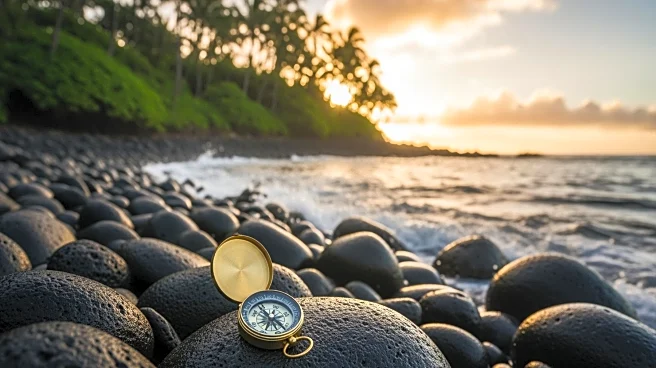Rapid Read • 8 min read
The Australian prepper community has seen significant growth, driven by global instability and the experiences of the COVID-19 pandemic. Trevor Andrei, a prominent figure in the community, emphasizes the importance of preparedness in the face of potential crises such as cyberwarfare or disruptions in oil supply. The pandemic highlighted vulnerabilities in supply chains, prompting more Australians to adopt prepping practices. This shift is reflected in increased demand for survival supplies, as noted by Sam and Candice Johnson, who run a camping store in Queensland. The prepper culture in Australia is characterized by practical preparedness for natural disasters, contrasting with the more extreme survivalist attitudes seen in the United States.
AD
The rise in prepping culture in Australia underscores a growing awareness of the need for self-reliance and resilience in the face of potential emergencies. This trend has implications for public policy and community planning, as more individuals seek to ensure their own safety and sustainability. The movement towards preparedness can lead to increased demand for survival goods and services, impacting local businesses and the economy. Additionally, the cultural shift may influence societal attitudes towards government reliance and personal responsibility, fostering a more self-sufficient mindset among Australians.
As the prepper community continues to grow, there may be further developments in the availability and variety of survival products and services. Educational initiatives, such as those led by Holly Robertson, who runs the Australian Bush Survival School, could expand to teach essential survival skills to a broader audience. The community's growth may also prompt discussions on the balance between preparedness and potential paranoia, as some individuals may become overly fixated on worst-case scenarios. Policymakers and community leaders might consider integrating preparedness education into broader disaster response strategies.
The expansion of the prepper community raises ethical and social questions about the balance between individual preparedness and community reliance. While self-sufficiency is valued, there is a risk of fostering isolationist attitudes that could undermine collective efforts in times of crisis. The movement also highlights generational shifts in skills and knowledge, as younger Australians seek to reclaim traditional survival skills that may have been lost in urban environments. This cultural evolution could lead to a reevaluation of lifestyle choices and priorities, emphasizing sustainability and resilience.
AD
More Stories You Might Enjoy












